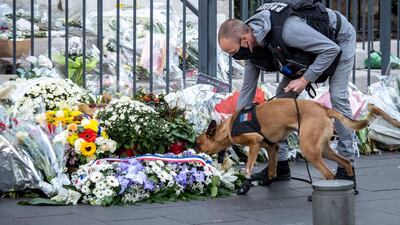ISIS supporters have used the social media platform Rocket Chat to celebrate the terrorist atrocities in Nice, which left three people dead.
Researchers at the Counter Extremism Project (CEP) think tank said they had monitored Rocket Chat media pages in the aftermath of the attacks last week and discovered posts showing bodies of the victims, two of whom were partially beheaded in the attack at a church.
Rocket Chat uses its own servers, which allows users to administer their own social-media networks.
The CEP found ISIS supporters shared images of the Nice attacker, Brahim Aioussaoi, and a video allegedly showing emergency personnel recovering a body.
There were also further posts calling for the group’s supporters to renew their pledge to its leader.
Rocket Chat is insulated from outside attack, “which means that it's a place where conversations and content can be really interesting,” said Charlie Winter, of the International Centre for the Study of Radicalisation at King’s College London.
“There will be further evolution and innovation in the next six months to a year as ISIS tries to figure out a new more sustainable model.
“The platform that ISIS will be using in six months’ time might not yet exist."
Last year, a report by Europol said ISIS has been turning to the "decentralised web" to find new sites after a crackdown by Facebook, Twitter and Telegram.
It had been dominant on Telegram until the platform deleted thousands of its accounts.
"The decentralised web gives users more say about where their data is stored, avoiding reliance on the big internet gatekeepers like Google and Facebook," author Peter King said in the report, titled IS Group’s Experiments with the Decentralised Web.
"Decentralised platforms like Rocket Chat and ZeroNet have proved attractive for ISIS media operatives, as the developers of those platforms have no way of acting against content that is stored on user-operated servers or dispersed across the user community.
"This contrasts with social media giants like Facebook and Twitter and messaging apps like Telegram – all with centralised data stores – which actively target content and accounts associated with [extremists]."
The paper was released at the European Counter-Terrorism Centre advisory network, at Europol’s headquarters in The Hague.












